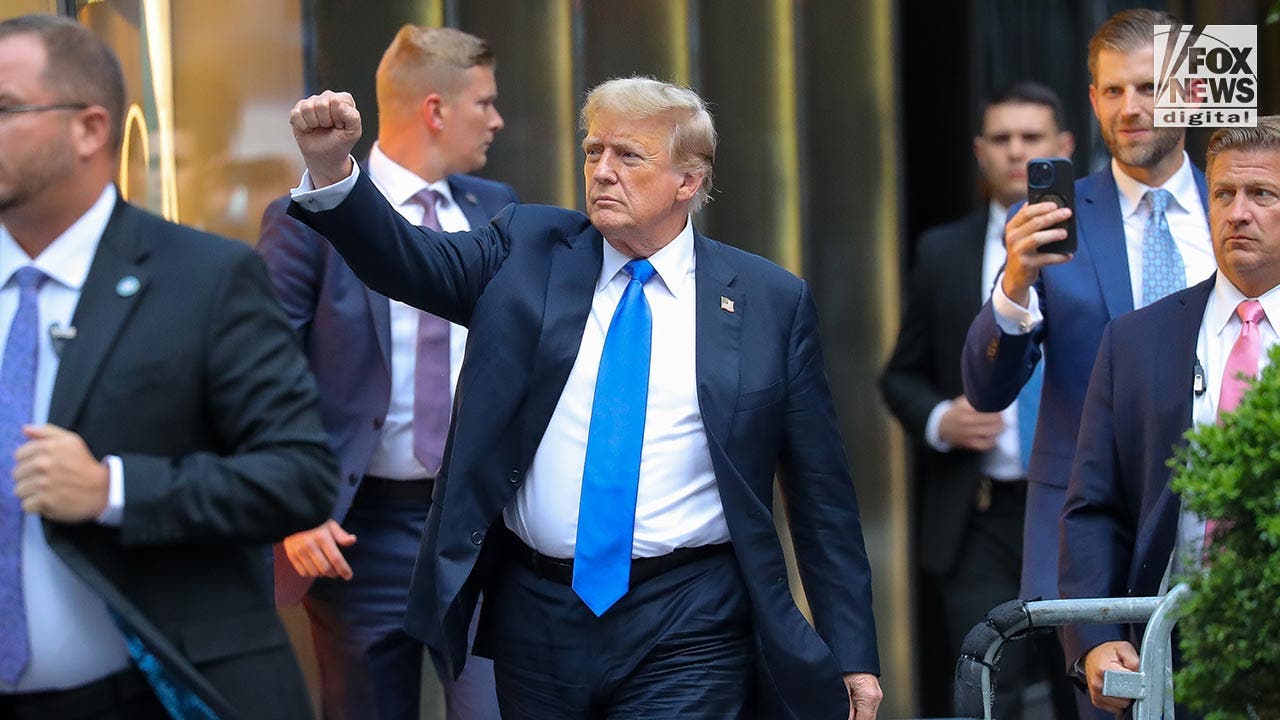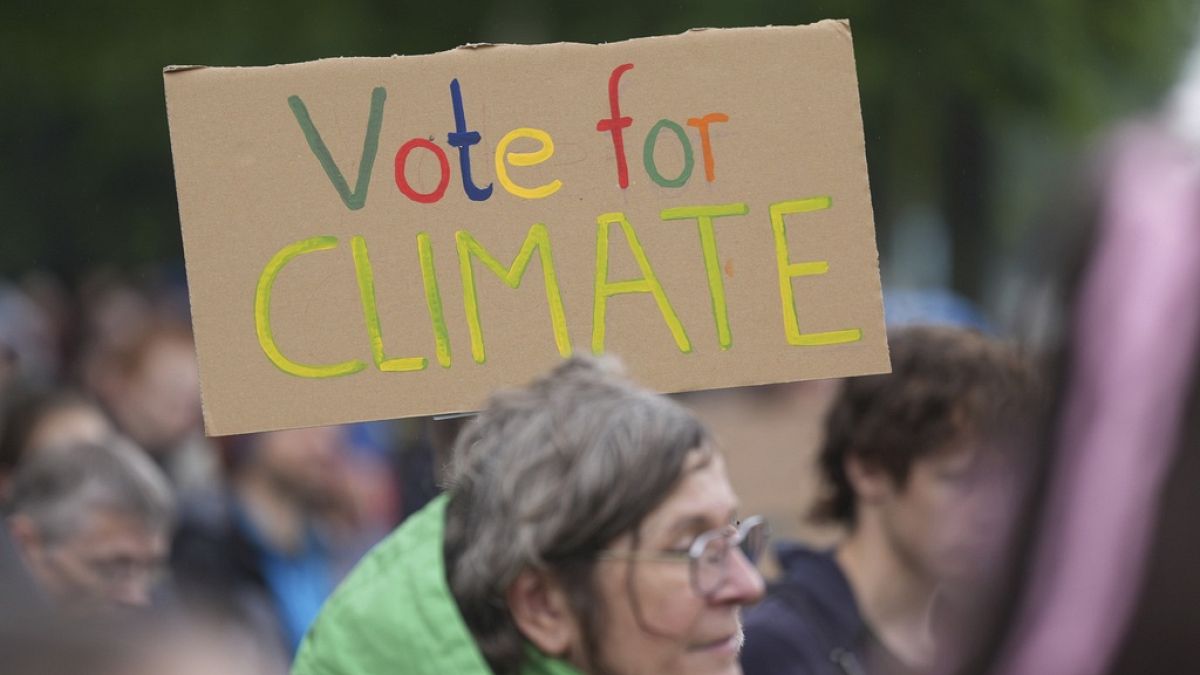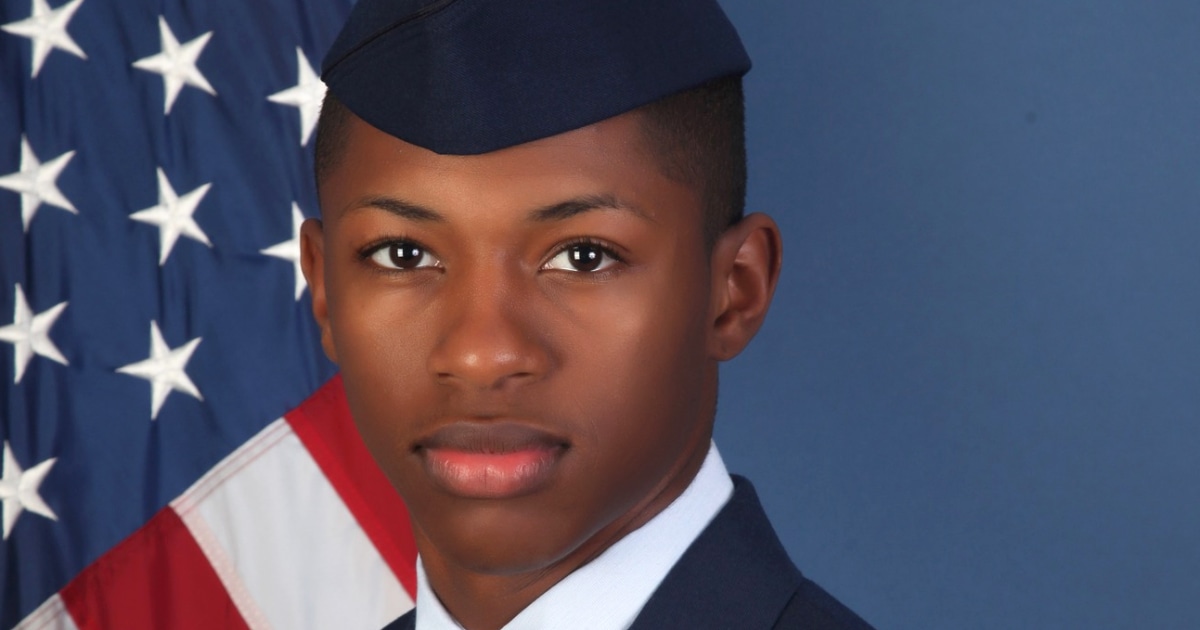World
Jewish groups and city officials plan protest against Roger Waters concert in Frankfurt

BERLIN (AP) — Several Jewish groups, politicians and an alliance of civil society groups are planning a memorial ceremony and a protest rally against a concert by Roger Waters in Frankfurt on Sunday evening.
They accuse the Pink Floyd co-founder of antisemitism – an allegation he denies.
Waters has also drawn their ire for his support of the BDS movement, which calls for boycotts and sanctions against Israel.
Frankfurt authorities had initially tried to prevent the concert, but Waters challenged that move successfully in a local court.
The concert is taking place in the city’s Festhalle, where in November 1938 more than 2,700 Jews were rounded up by the Nazis, beaten and abused, and later deported to concentration camps.
“It’s very frustrating” that the concert is going ahead as scheduled even though Frankfurt officials and many others tried to prevent it, said Elio Adler, the head of the Jewish group WerteInitiative which supports the protest.
“His words and imagery spread Jew-hatred and are part of a trend: to normalize Israel-hatred under the protection of freedom of speech or art,” Adler added.
Last week, police in Berlin said they had opened an investigation of Waters on suspicion of incitement over a costume the Pink Floyd co-founder wore when he performed in the German capital earlier this month.
Images on social media showed Waters firing an imitation machine gun while dressed in a long black coat with a red armband. Police confirmed that an investigation was opened over suspicions that the context of the costume could constitute a glorification, justification or approval of Nazi rule and therefore a disturbance of the public peace.
Waters rejected those accusations in a statement on Facebook and Instagram, saying that “the elements of my performance that have been questioned are quite clearly a statement in opposition to fascism, injustice, and bigotry in all its forms.”
He claimed that ”attempts to portray those elements as something else are disingenuous and politically motivated.”
During Sunday’s ceremony, which will take place in front of the Frankfurt concert venue before Waters’ concert begins, protesters will read out loud the names of 600 Jews who were rounded up at the Festhalle on November 9, 1939, the so-called Kristallnacht — the “Night of Broken Glass” — when Nazis terrorized Jews throughout Germany and Austria.
The organizers also plan to hold a joint Jewish-Christian prayer for the victims of the Nazi terror in Frankfurt. The city’s mayor as well as the head of the local Jewish community will speak at the protest.
In addition, activists plan to hand out flyers to concertgoers and wave Israeli flags, said Sacha Stawski from the Jewish group Honestly Concerned, which helped organize the protests.
Protesters in Munich rallied against a concert by Waters earlier this month, after the city council said it had explored possibilities of banning the performance but concluded that it wasn’t legally possible to cancel a contract with the organizer.
Last year, the Polish city of Krakow canceled gigs by Waters because of his sympathetic stance toward Russia in its war against Ukraine.

World
El Salvador’s President Nayib Bukele cements power as he begins second term

After February landslide win, 42-year-old set to govern for another five years with near-total control of parliament and other state institutions.
El Salvador’s President Nayib Bukele is set to be sworn in for a second term, riding on a wave of popularity that has helped him consolidate his power and influence in the country.
The 42-year-old, who unapologetically describes himself as a “cool dictator”, was re-elected in February with 85 percent of the vote. He is set to govern for another five years with near-total control of parliament and other state institutions.
The former publicist and mayor will take the oath of office at the National Palace in the capital, San Salvador, on Saturday.
The ceremony is due to be attended by dignitaries including Spanish King Felipe VI and Argentinian President Javier Milei, with whom Bukele shares an admiration for former United States President Donald Trump, whose son and namesake is also attending the event.
On Friday, inauguration preparations were disrupted by reports that police thwarted a plot to detonate explosives at locations across the country.
Bukele enjoys sky-high approval ratings due to his brutal crackdown on criminal gangs, credited with returning a sense of normalcy to a violence-fatigued society.
The campaign has drawn criticism from rights groups but has made Bukele the most popular leader in Latin America, according to a regional poll.
Bukele’s New Ideas party scored a near-clean sweep in legislative elections, where it took 54 of 60 seats.
Yet experts warn his extended honeymoon with voters may be nearing its end as economic worries overtake safety concerns in the public discourse, amid high government debt and fast-rising prices for consumer goods in a country where more than a quarter of the six million population lives in poverty.
Food inflation, meanwhile, has outpaced salary increases while public debt has skyrocketed on his watch to more than $30bn, or 84 percent of the country’s gross domestic product (GDP).
Gangs as a ‘cancer’
Bukele will have even more power in his second term after the legislative assembly approved a reform that will make it easier for him to push through constitutional changes.
The president has laughed off criticism of authoritarian tendencies, but he was only able to seek re-election after a loyalist Supreme Court ruling allowed him to bypass a constitutional ban on successive terms.
“What he has demonstrated is that the law is irrelevant and that he can do whatever he wants, how he wants,” public policy expert Carlos Carcach told AFP news agency, describing Bukele as an “all-powerful” president.
With his preferred getup of jeans and a baseball cap, millennial Bukele came to power in 2019 promising to crush the country’s gangs, to which he attributes some 120,000 murders over three decades – more than the 75,000 lives lost in El Salvador’s civil war from 1980 to 1992.
During Bukele’s first term, authorities rounded up more than 80,000 presumed gangsters under a state of emergency in place since March 2022 that allows for arrest without a warrant.
His government also built the largest prison in Latin America to hold them.
The result, Bukele has boasted, has been turning “the murder capital of the world, the world’s most dangerous country, into the safest country in the Western Hemisphere”.
But it has come at a cost.
Human Rights Watch and Amnesty International have reported the killing and torture of detainees, and thousands of innocent people – including minors – among those arrested.
World
15 years on, the Tamil survivors of Sri Lanka's brutal civil war live in fear — and disempowerment
MULLAITIVU, Sri Lanka (AP) — At the site of a bloody battlefield that marked the end of Sri Lanka’s civil war, Singaram Soosaimuthu fishes every day with his son, casting nets and reeling them in.
It is a skill he has known for much of his life — and one that he had to relearn after a devastating injury. The former Tamil fighter lost both legs in 2009 as the nation’s generation-long civil war drew to a close and the Tamils retreated in defeat.
Making something of himself despite his injuries brought Soosaimuthu success — an achievement in which he finds profound meaning. He sees his fellow ethnic Tamils in the same light: To regain their voice, they must thrive.
But defeat — bloody, protracted and decisive — has brought Sri Lanka’s minority Tamil community to a point of despair.
Some parents have given up hope of ever learning the fate of the thousands of missing children. Parts of the Tamil lands are decimated, with poor infrastructure and fewer economic opportunities. Survivors have lived under surveillance for years, and many now feel that members of the rising generation have grown too fearful and apathetic toward speaking up for their rights.
“There is a clear agenda underway to degenerate a defeated community,” says Selvin Ireneus, a social activist based in Jaffna, the Tamils’ northern cultural heartland.
The government, he says, doesn’t want today’s Tamils to be politically evolved. After fighting ended, he asserts, narcotics and other vices have been systematically introduced into the region. “They only want them to eat, drink and enjoy and not have a political ideology,” Ireneus said. “This has happened with all defeated communities in the world.”
The island nation of 20 million is overwhelmingly ethnically Sinhalese, with the Tamil community making up about 11% of the population. The separatist civil war broke out in 1983 after years of failed attempts to share power within a unified country, with Tamil fighters — known as the Liberation Tigers of Tamil Eelam, or simply the Tamil Tigers — eventually creating a de facto independent homeland in the country’s north.
The group was crushed in a 2009 government offensive. The war killed at least 100,000 on both sides, and left many more missing.
Though not all Tamils were part of or supported the Tamil Tiger rebel group, their defeat has effectively become a political defeat to the community. They have lost their bargaining power.
“What is remaining now is a very small community, and they don’t have the courage … to show dissent,” says K.T. Ganeshalingam, head of political science at the University of Jaffna.
Sri Lanka’s government had promised the United Nations and countries like India and the United States that they would share power with the Tamil-majority areas to resolve the causes that led to the civil war. However, successive governments have not followed up.
Fifteen years on, some in Tamil areas are still in denial that the armed campaign has been defeated and that the rebel leader Velupillai Prabhakaran, who was seen as invincible, has been killed. Sections of the expatriate Tamils in Europe have been claiming that Prabhakaran would return soon to take on the campaign to the next stage, including a woman who claims to be his daughter and is said to be collecting donations in his name.
Prabhakaran’s nephew in Denmark, Karthic Manoharan, says the time has come to put a stop to the rumors and state, emphatically, that the leader is dead.
“We don’t have any doubt regarding (his death) because he loved his country so much. And he’s not a coward to run from the country and live in another country, in a different country to save himself, his wife and his daughter,” Manoharan says.
Such beliefs are more than simply inaccurate, says Ganeshalingam; they’re genuinely harmful to any possible future that the Tamil people are trying to chart. He wonders: “If I have not grasped the fact that I am defeated, how can I rise from that?”
Discussing the Tamil Tigers’ defeat, their past mistakes and even Prabhakaran’s death is discouraged in Tamil society, especially in the diaspora. Ganeshalingam says such attitudes have created a stagnation in Tamil politics.
Political leaders are divided and are in disarray. A political alliance that the Tamil Tigers formed is fragmented with many leaders breaking away to form their own parties. Civil activists are now working to unify them and strengthen their bargaining position ahead of the presidential election later this year.
In the villages of Mullaitivu district, where the final battle between government forces and the Tamil Tigers unfolded, many men are addicted to narcotics and alcohol, forcing women to be the family’s main breadwinners, says Yogeswari Dharmabaskaran, a social worker in the Udaiyarkattu area of Mullaitivu district. School dropouts soar in the villages, she says, as boys find easy money through selling narcotics, illegal tree-felling and the mining of river sand.
In Jaffna, local politician Thiyagaraja Nirosh says family elders discourage young people from discussing political rights. Because of that, it is difficult to find younger candidates to run in local elections.
“There is fear that talking politics is dangerous. Many family elders do not encourage talking politics,” Nirosh says “The reason is that there has been no justice for the past killings. They see no guarantee that such incidents won’t recur.”
Thayalan Kalaipriya, a former rebel, wonders about the future often. She says her many losses have made her deeply desire unity among all Sri Lankans; at the same time, she says it is painful to realize their efforts to win political rights have been wasted.
Former rebels often do not receive adequate support and at times ex-fighters, like those who conscripted children at the height of the war, are treated with resentment, although she says some respect their commitment and sacrifice.
She finds solace by working with her young children, educating them and helping to give them a good life in a land she hopes is free of civil war and the sad echoes it has caused.
“We teach our children about what happened,” she says, “but never to seek revenge.”
___
Associated Press journalist Nat Castañeda in Copenhagen contributed to this report.
World
Turkish drone strikes in Syria kill 4 U.S.-backed fighters, wound 11 civilians, Kurdish group says
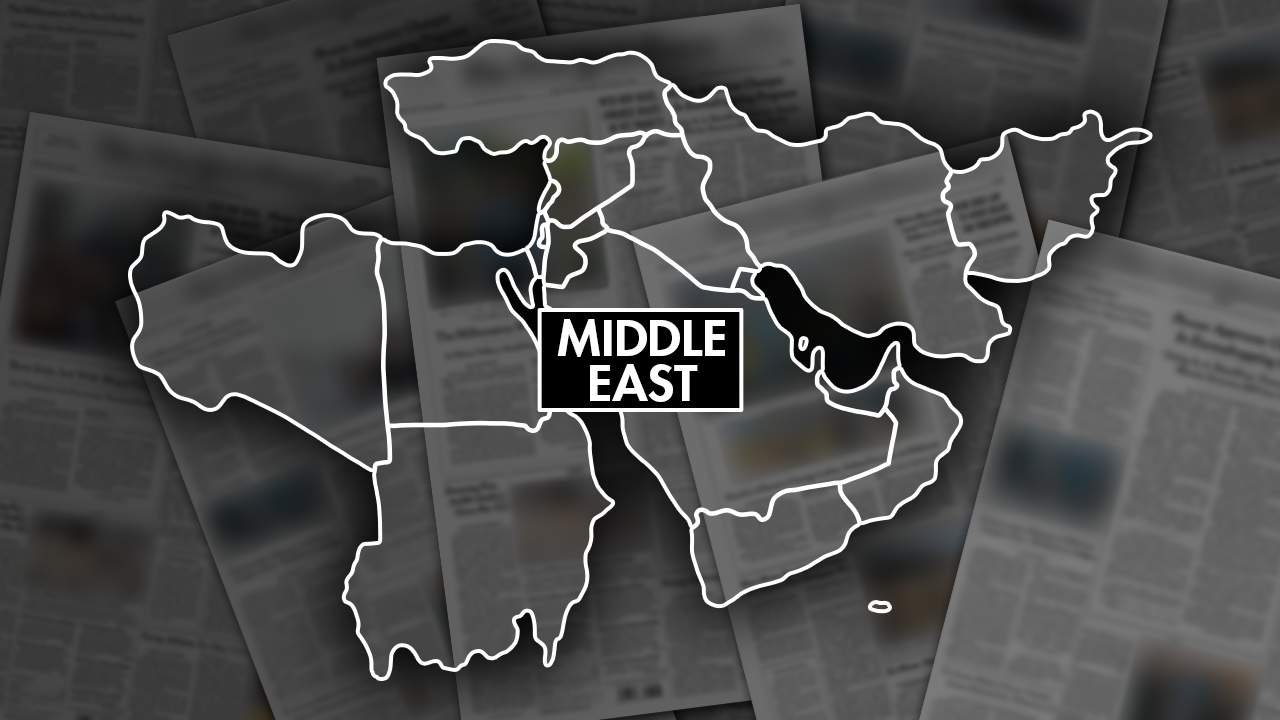
Turkish drone strikes in northeastern Syria on Friday evening killed four U.S.-backed fighters and wounded 11 civilians, the Kurdish-led force said.
The strikes on areas held by the U.S.-backed and Kurdish-led Syrian Democratic Forces came a day after Turkey’s president said his government won’t hesitate to act against Kurdish-led groups in northern Syria if they proceed with plans to hold local elections. It accuses the groups of having links to outlawed Kurdish militants in Turkey.
TURKEY SENTENCES PRO-KURDISH POLITICIANS TO LENGTHY PRISON TERMS OVER DEADLY 2014 RIOTS
The SDF said drone strikes hit its positions eight times as well as civilian homes and vehicles in and near the northern city of Qamishli. Such Turkish strikes are not uncommon in northeastern Syria.
The Kurdish Red Crescent said that as its paramedics were trying to reach the attacked areas, a Turkish strike hit one of its ambulances, putting it out of service. It said the attack occurred near the town of Amouda, west of Qamishli.
A U.S.-backed force in Syria says Turkish drone strikes in northeastern Syria have killed four Kurdish fighters and wounded 11 civilians. (Fox News Digital)
There was no immediate comment from Turkey.
The Kurdish-led autonomous administration that controls northern and eastern parts of Syria has announced plans to hold municipal elections June 11. The vote to choose mayors will be held in the provinces of Hassakeh, Raqqa, Deir el-Zour and the eastern part of Aleppo province.
On Friday, State Department spokesperson Vedant Patel posted on X that “we don’t think that the conditions for such elections are in place in NE Syria in present time.”
The comments appeared to be a message to Kurdish-led authorities not to hold the elections.
Turkey, which has conducted military operations in Syria in the past, considers the move a step by Syrian Kurdish militants toward the creation of an independent Kurdish entity across its border. It has described the planned polls as a threat to the territorial integrity of both Syria and Turkey.
“We are closely following the aggressive actions by the terrorist organization against the territorial integrity of our country and of Syria under the pretext of an election,” President Recep Tayyip Erdogan said Thursday.
Turkey considers the Kurdish militia group, known as the People’s Protection Units, as a terrorist group linked to an outlawed Kurdish group that has led an insurgency in Turkey since 1984. That conflict with the Kurdistan Workers’ Party has killed tens of thousands of people.
The People’s Protection Units provide the backbone of the Syrian Democratic Forces, which is a key U.S. ally in the fight against the Islamic State group. American support for the SDF has infuriated Turkey and remains a major source of friction in their relations.
-

 World1 week ago
World1 week ago€440k frozen in Italy over suspect scam by fake farmers
-

 News1 week ago
News1 week agoBuy-now, pay-later returns and disputes are about to get federal oversight
-
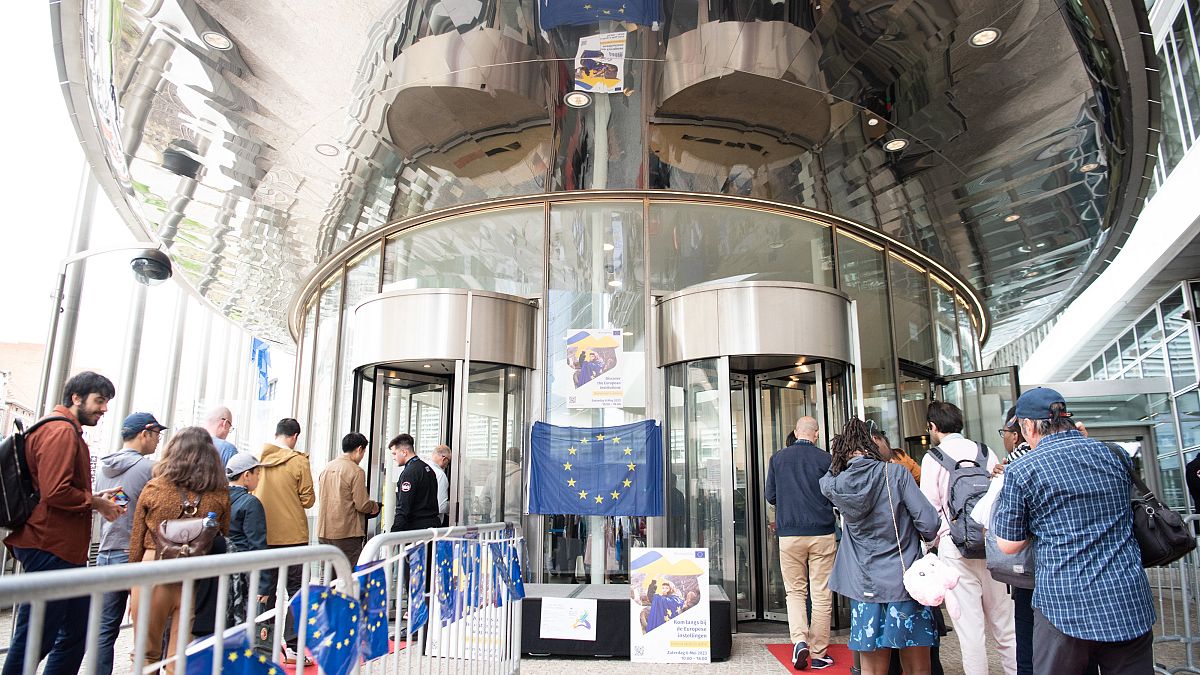
 World1 week ago
World1 week agoOmbudsman probes Commission's senior staff 'revolving door'
-

 News1 week ago
News1 week agoRead the I.C.J. Ruling on Israel’s Rafah Offensive
-

 News1 week ago
News1 week agoVideo: Protesters Take Over U.C.L.A. Building
-
/cdn.vox-cdn.com/uploads/chorus_asset/file/25459708/Screenshot_2024_05_22_at_9.08.56_AM.png)
/cdn.vox-cdn.com/uploads/chorus_asset/file/25459708/Screenshot_2024_05_22_at_9.08.56_AM.png) Technology1 week ago
Technology1 week agoSuper Mario Maker 64 exists, thanks to a new ROM hack
-

 World1 week ago
World1 week agoHoping to pave pathway to peace, Norway to recognise Palestinian statehood
-
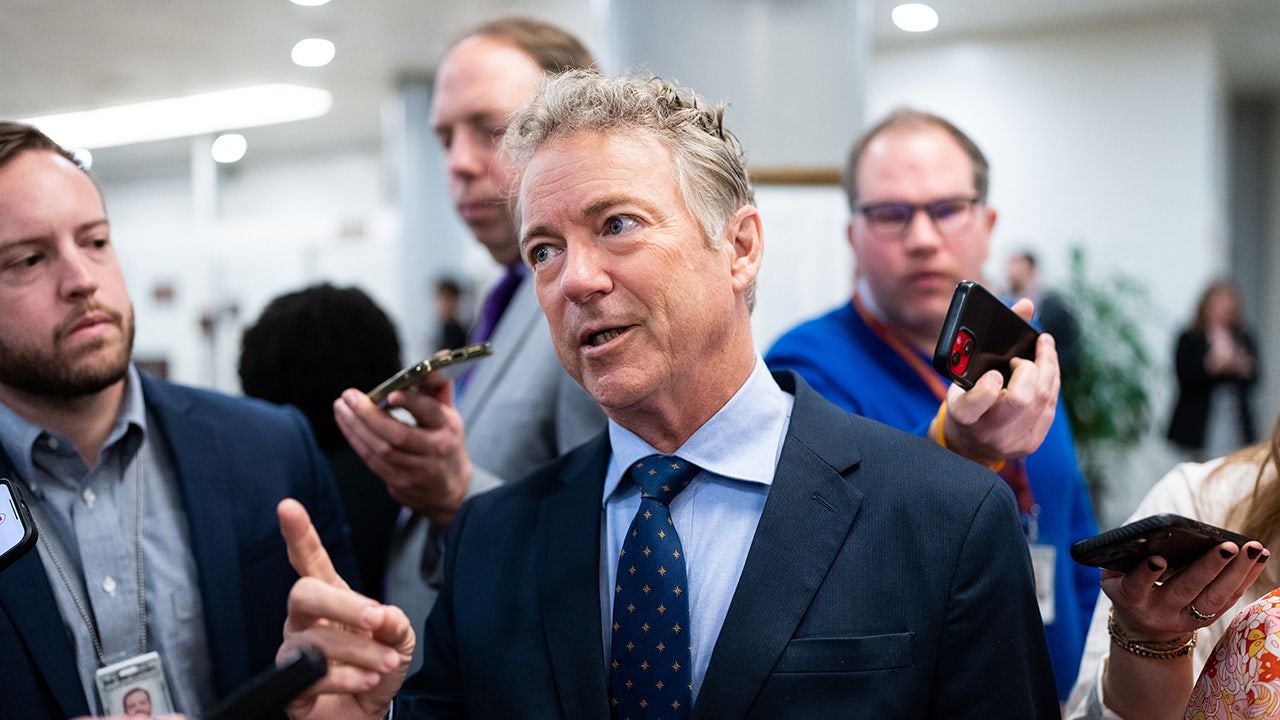
 Politics1 week ago
Politics1 week agoFauci adviser's alleged destruction of COVID origin docs must be probed by AG: Rand Paul












